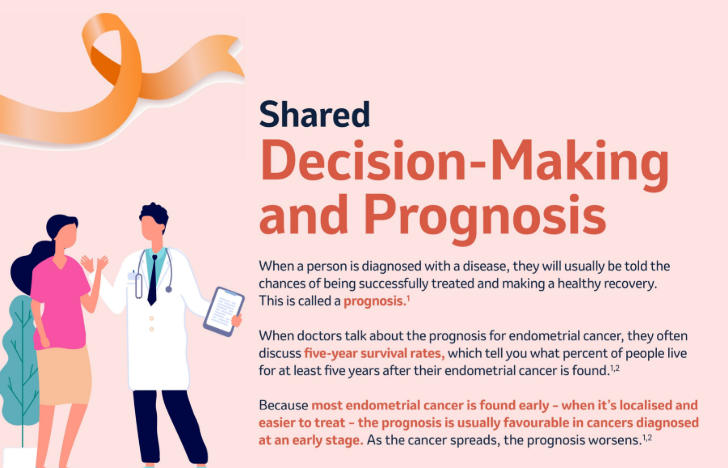When a person is diagnosed with endometrial cancer, doctors often discuss prognosis in terms of five-year survival rates, which estimate what percent of people are alive five years after their diagnosis.
Because most endometrial cancers are detected early and are localized, the prognosis is usually favorable.
Shared decision-making helps patients take an active role in their care. This approach involves conversations with the healthcare team to understand treatment options, side effects, and personal preferences—leading to more comfortable and satisfied decision-making.
A multidisciplinary team supports patients throughout their journey. This may include gynecologists, oncologists, radiologists, pathologists, and psychologists who work together to guide diagnosis, explain treatment options, and provide emotional support.
Prognosis can vary by ethnicity, with studies showing that some groups—such as Black women—are more likely to be diagnosed at later stages and face higher mortality rates.
Recurrence can happen even after treatment, so regular pelvic exams and imaging tests are important for follow-up care.
Overall, endometrial cancer has encouraging survival rates—81% for all stages combined, 95% for localized, 70% for regional, and 18% for distant cancers—underscoring the value of early detection and continuous care.

PH-END-00026



